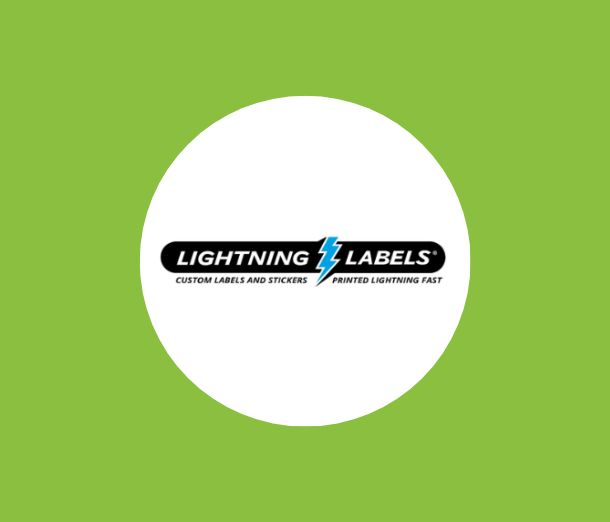Content Marketing Solutions for Manufacturers
Content creation is more than a trend. It’s the future of digital marketing — and your manufacturing business can’t afford to be left out.
Here’s what every manufacturer should know about content creation, distribution and metrics.
By entering your email address, you agree to receive emails from Brafton in accordance with our Privacy Policy.
You may unsubscribe from these communications at any time.
It’s no exaggeration to say content marketing is all the rage, regardless of industry or business size. In fact, 73% of business-to-business (B2B) and 70% of business-to-consumer (B2C) marketers use content as part of their overall strategy — and nearly 70% of businesses intend to increase their content budgets in the year ahead.
Brafton has been at the forefront of content marketing solutions for manufacturers for 15+ years. Today, we’re an international leader in content marketing strategy, content creation services and content marketing technology. And we’re ready to share our expertise with manufacturers and industrial professionals all around the world.
Why Do Higher Education Institutions Need Content Marketing? 5 Key Benefits
The manufacturing industry has long thrived on more traditional forms of advertising. However, customer preferences and habits are changing: 62% of B2B buyers say their research process relies on content more than ever, while 89% of consumers say content such as a promotional video has convinced them to pay for a service. To remain relevant and competitive in today’s customer-centric landscape, your manufacturing company must go where your target audience is: online.
Of course, the value of content marketing isn’t just about staying trendy. A good content strategy has plenty of other benefits, including:
Hear From Some of Our Clients:
How We Helped Agile Education Marketing Boost Its MQL Close Rate by 108%
How Our Video Team Helped Lasko Create an Online Self-Service Center
Brafton Achieves Consistent YoY Increases in Blog Sessions for Lightning Labels
Types of Content Marketing Services for Manufacturing Businesses
While content creation and distribution are critical in today’s marketing landscape, these tasks require a unique set of skills, plenty of resources and a lot of research to perform properly. Even an enterprise-level organization may not be equipped to handle the fast-changing world of Google Analytics and similar tools. That’s part of the reason half of all marketers outsource at least some of their content marketing.
Don’t make a manufacturer do a marketer’s job. Here are just a few services your manufacturing business can outsource:
CONTENT CREATION
The right content speaks to the right people. You need a team of dedicated professionals whose skills span all the major content types, including:
- Content writing, such as blog posts, landing pages and gated assets.
- Graphic design, including eBooks, white papers and infographics.
- Video production, from short-form videos to longer explainer content.
- Web design, which improves the user experience and acts as a home for your manufacturing content marketing strategy.
When all of these talents are within reach, your company can choose the best way to share different kinds of information. For example, graphics and video are particularly valuable in the manufacturing and logistics industry, where hard data must be visualized in approachable, memorable ways. Similarly, blog posts are a perfect platform for thought leadership and industry expertise.
Another benefit of having dedicated content creation teams is that these experts are trained in search engine optimization (SEO). This means they’re able to build assets that appeal to search engines, rank more highly on SERPs and get your content in front of more potential clients.
Content Distribution
Your manufacturing company can also benefit from content distribution services. This includes:
- Email marketing, which involves writing emails to promote services or assets and maintaining a newsletter distribution list.
- Social media marketing, which prioritizes channels where your target audience is most active and encourages engagement, sharing and more.
- Pay-per-click advertising, where you only pay when someone clicks on your ad.
All of these distribution options rely on a strong content marketing strategy, solid client research and a robust library of unique assets on your website. That’s why it’s often best to outsource to experts in building and managing a marketing plan.
Performance Tracking
To actively improve your digital marketing efforts and consistently create better blog posts, email marketing content and other assets, you need to know what works and what doesn’t. Good content services will offer performance tracking at every stage of the strategic process and utilize tools like Google Analytics to provide in-depth looks at your campaigns. This not only supports your marketing efforts in a fast-changing environment, but it also allows your manufacturing and logistics team to better understand what an incoming client might be looking for.
Strategy-Driven Content Marketing Manufacturers Can Trust
Remember that content creation is only the first step in content marketing (albeit a critical one). You should also have a plan in place to take advantage of the traffic, engagement and shares initiated by your new assets. That’s why you need a marketing strategy — and, perhaps more importantly, a digital marketing strategist.
When it comes to manufacturing content marketing, a solid approach should always start with numbers. That’s not just because, as a business operating in the manufacturing and logistics industry, you’re driven by precise measurements; it’s also because this information is the best and most reliable way to structure your marketing strategy. When you partner with a digital marketing firm, they should track and provide data on:
These numbers can come from a variety of sources, but the best marketing partner for your manufacturing company will use approaches such as:
Google Analytics Monitoring
Google Analytics offers a wealth of knowledge for any organization, from a small manufacturing business to a multinational corporation. This tool helps digital marketing experts track key website information — for example, the source of traffic directed to a particular page. Your marketing partner should use Google Analytics at every stage of your manufacturing content marketing strategy, from planning to performance tracking.
SEO Scoring
An SEO score is a measurement of how well your site appeals to users and, therefore, search engines. You need to keep track of this score to determine whether your digital marketing efforts are headed in the right direction. Fortunately, a good marketing services provider can do this work for you, providing key information on elements such as technical SEO, user-friendliness and more.
Your digital marketing provider will assign a content marketing strategist and account manager. These experts — along with their partners in social media, email marketing and other branches of content creation — will interpret the data and recommend next steps based on their insights. This helps ensure you’re taking advantage of every opportunity and addressing any gaps in your marketing plan.
The Right Content Marketing Agency for Your Manufacturing Company
When searching for a content marketing agency to partner with your manufacturing business, look for elements such as:
- Skill sets: Does the agency employ a wide variety of creators, strategists and SEO experts to serve your company’s needs?
- Experience: Can the agency demonstrate a strong pedigree in digital content marketing, with many years of experience in the field?
- Testimonials: Are there case studies or testimonials from existing clients, ideally in the manufacturing business?
- Flexibility: Can the firm serve multiple industries and business sizes, indicating strong attention to detail and an ability to address changing needs?
- Adaptability: Does the organization promise to build a marketing strategy based on industry insights and your firm’s unique needs and KPIs?
- Capability: Can this partner create, distribute and track the performance of all content?
Remember, this isn’t just a business deal — this is a partnership. A good content marketing agency will take your suggestions and ideas, help you brainstorm, interview internal subject matter experts or handle the creative work themselves, depending on your needs and goals.
To learn more about what a content marketing partnership should look like, get in touch with Brafton today. We look forward to helping your manufacturing company deliver even better service to potential and current clients.
Ready to Transform your Content Creation?
Brafton is ready to bring your digital marketing to the next level — all you have to do is reach out.


